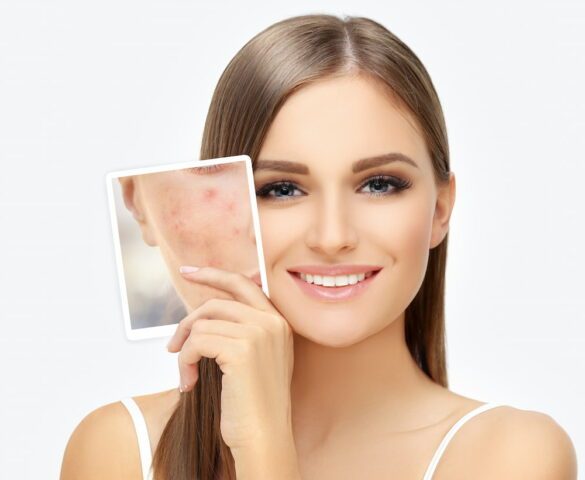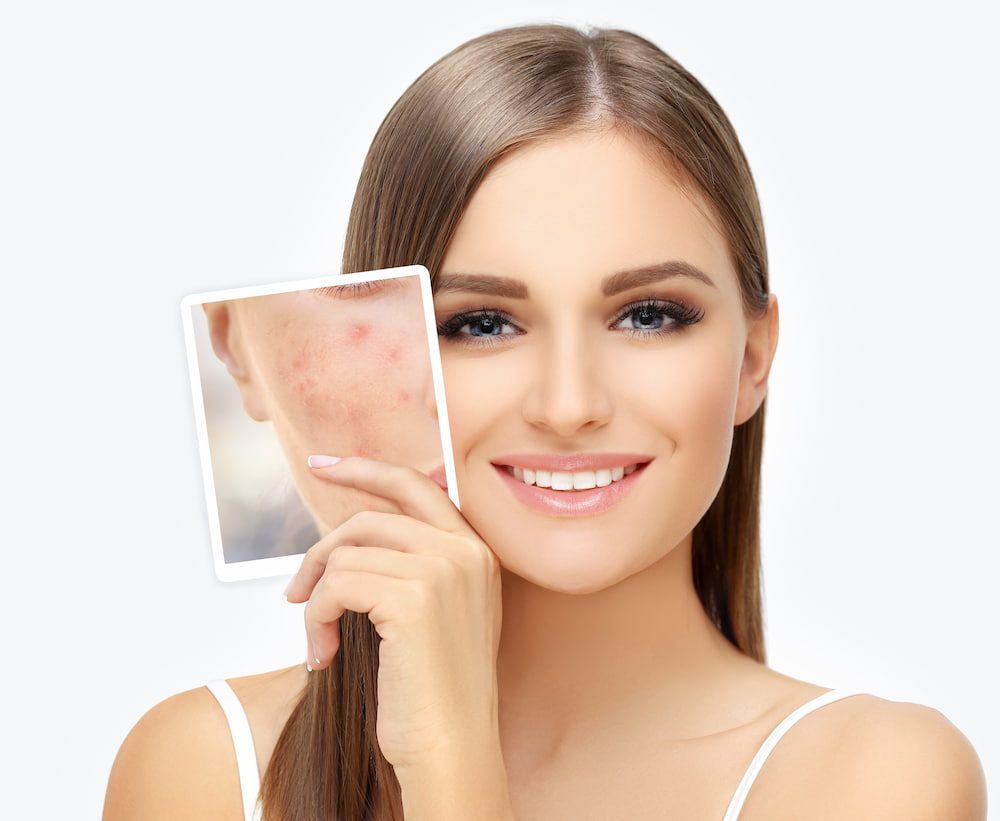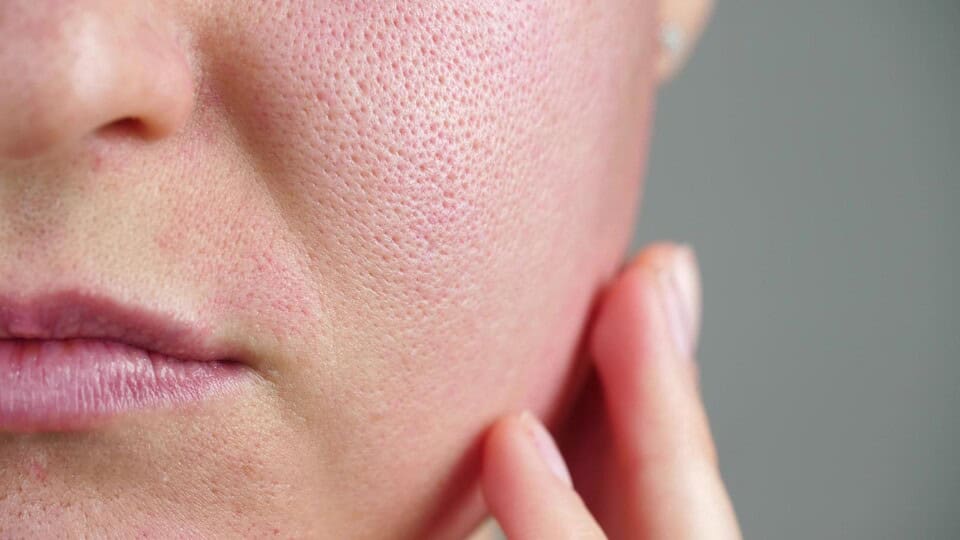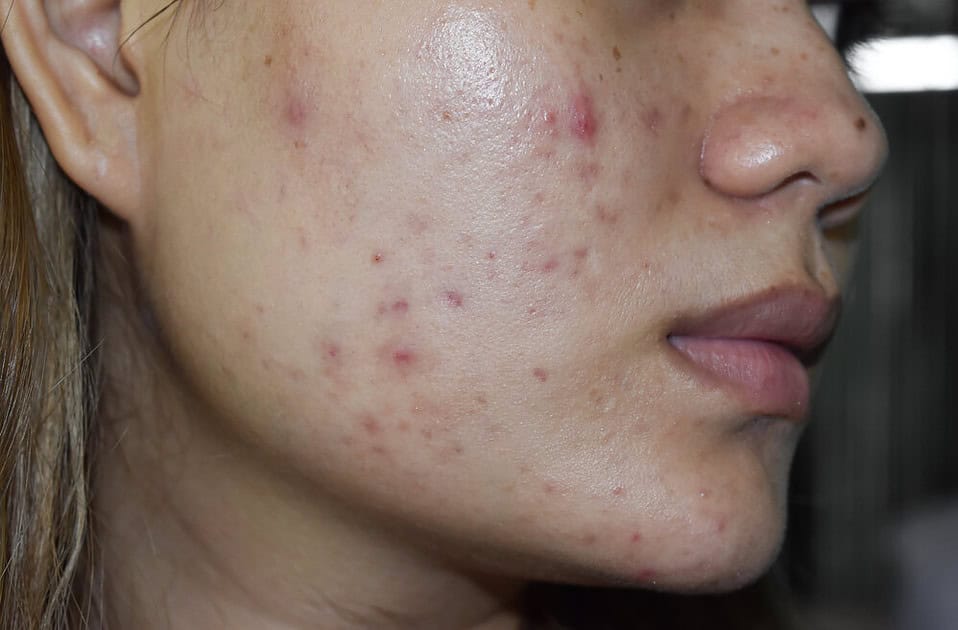
Where to Seek Treatment for Different Acne Types
Acne is a common skin problem that is often considered a normal part of growing up. However, types of acne vary from mild to moderate to severe. A severe case of acne can significantly impact a person’s self-esteem, which can lead to more serious issues, like depression.
Those seeking acne treatment in Bangkok have come to the right place. But first, let’s understand what acne vulgaris (the medical term for acne) is.

Different Types of Acne
Acne vulgaris is characterized into four types, according to the severity of its symptoms.
Mild
A mild case features comedones, which form when excess oil and dead skin cells clog the skin’s hair follicles or pores. While comedones don’t hurt, they can become widespread and even infected. There are two types of comedones, whiteheads and blackheads. Whiteheads are closed pores that are raised and white in appearance. On the other hand, blackheads occur when the clogged pores are open, causing the buildup to oxidize and turn black.
Moderate
Moderate symptoms of acne develop when bacteria also get trapped inside the clogged pores, and they become what we know as pimples. Bacteria can cause inflammation and pus, a sign of infection. Pimples with pus are called pustules, while those without pus are called papules.
Severe
There is a type of acne that causes swollen, sore bumps called acne nodules (without pus) or cysts (with pus), which are considered severe acne symptoms. These occur when the pimples break out deep into the skin, which is closer to your nerves, causing the inflammation to be more painful.
Common Causes of Acne
While there is no single determinant, some conditions increase the likelihood of getting acne and may cause it to worsen.
Genetics
Some individuals are genetically predisposed to acne. If you have close family members who have acne, chances are high that you’re also more prone to getting it. Because acne is formed due to excess oil or sebum, it’s also more common among those with oily skin.
Hormones
The fluctuation of hormones such as estrogen, progesterone, and testosterone in the body - especially during puberty - can cause the production of more sebum, which can lead to clogged pores and acne.
Lifestyle
Having a diet high in oil or fats that tend to worsen inflammation in the body, and getting insufficient sleep, can exacerbate acne symptoms. And contrary to popular belief, stress doesn’t directly cause acne, although too much stress can make it worse. Smokers have also been found to have a higher occurrence of acne than non-smokers.
Manage Acne Symptoms
Acne can cause permanent blemishes and scarring, impacting a person’s body image and self-esteem. That’s why popping pimples yourself is discouraged, as this may cause infection and scarring. Acne scars are often dark or discolored and may be raised or depressed, depending on the acne type.
A healthy lifestyle and diet can help patients manage acne.
For milder cases of acne, we recommend you follow a daily skin care regimen morning and night. Cleanse, exfoliate, and moisturize your face regularly using products specially formulated to prevent acne.
Use products that won’t clog pores and are oil-free, non-comedogenic, gentle, or for sensitive skin. Most health and beauty stores offer topical creams with ingredients that fight acne, like tretinoin, salicylic acid, or benzoyl peroxide.

Professional Treatment for Acne
Doctors may prescribe antibiotics or corticosteroid injections to lessen the inflammation in the affected areas, depending on the acne type you have and its severity. Treatment plans can take months and even years, but there are plenty of success stories where signs of acne have been controlled and erased.
For those with moderate to severe cases of acne, it’s best to see our board-certified dermatologists to find out how you can manage your condition.
Our specialists at Nirunda Clinic have years of experience in curing all types of acne using state-of-the-art technology and techniques. Severe acne cases may require professional acne extraction, acne laser treatment, or blue light therapy to help lessen the inflammation.
Chemical peels and dermabrasion are also offered to promote wound healing and lessen the appearance of acne.
Let our dermatologists advise you on the best ways to treat your acne. Book a consultation and find out how to achieve clearer, smoother, acne-free skin for good.








